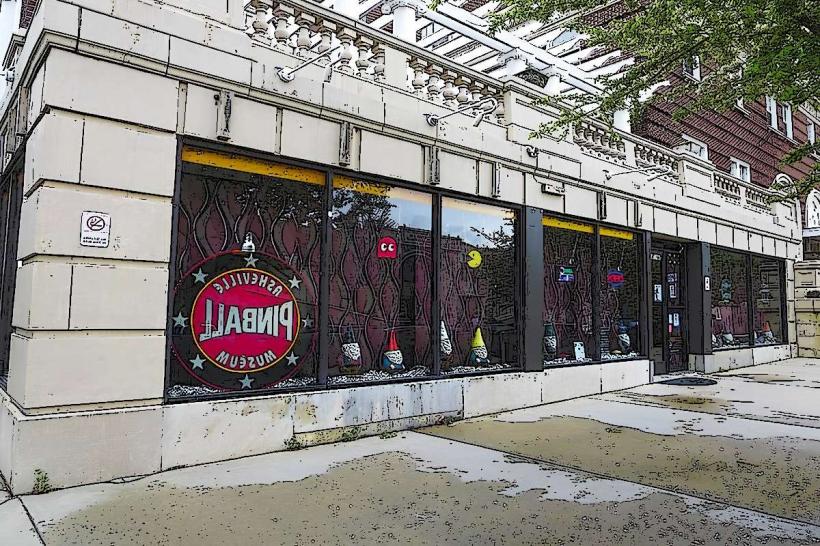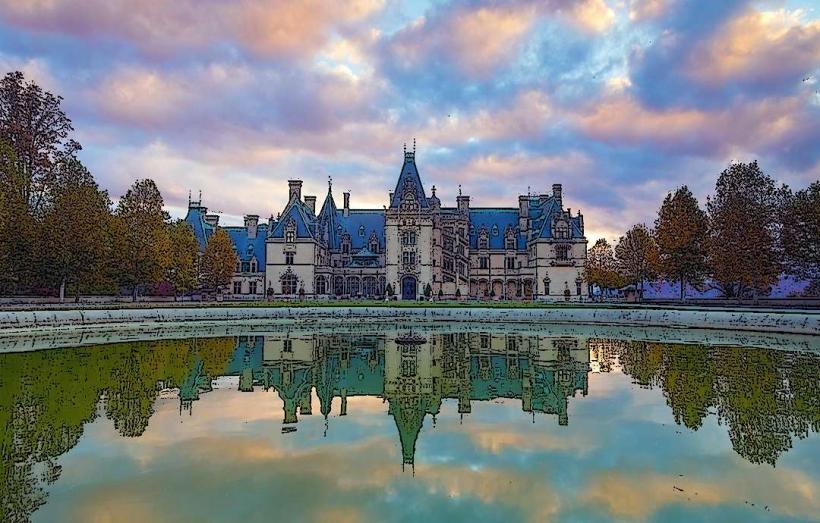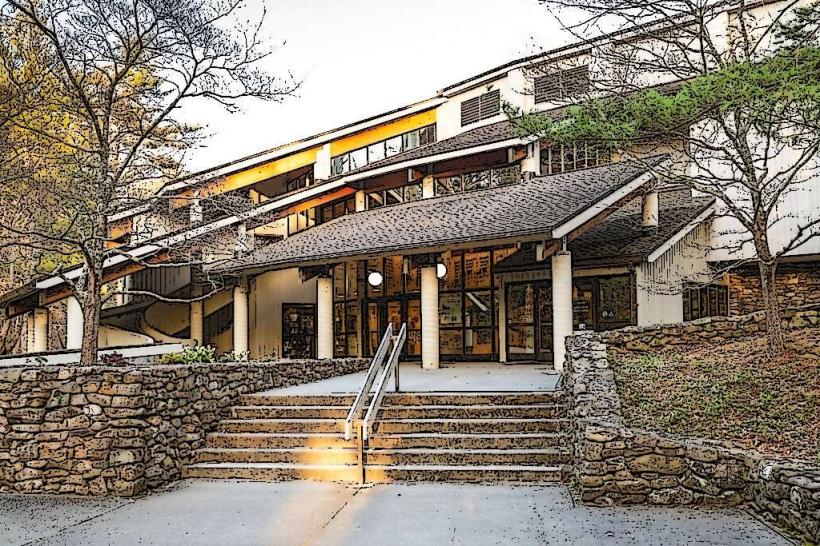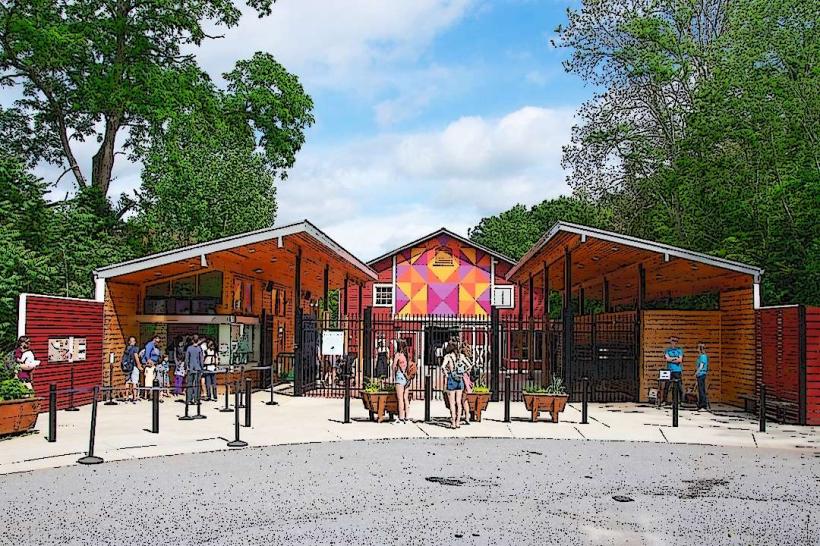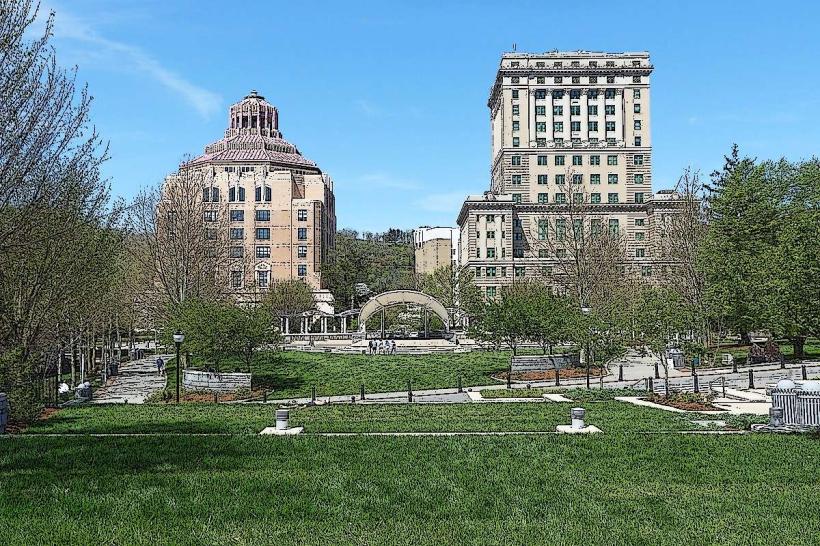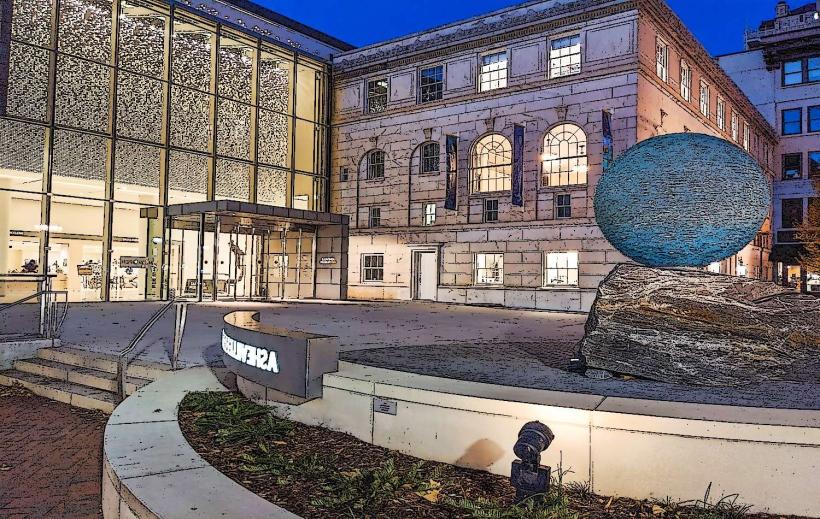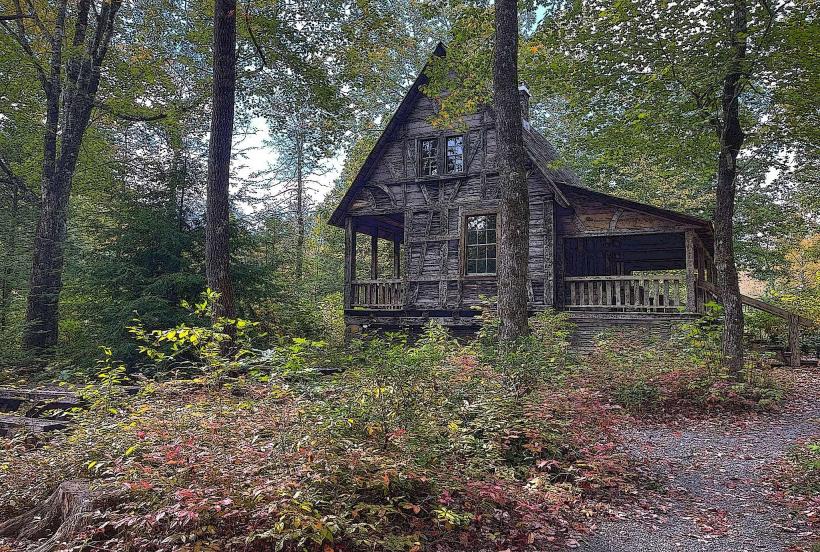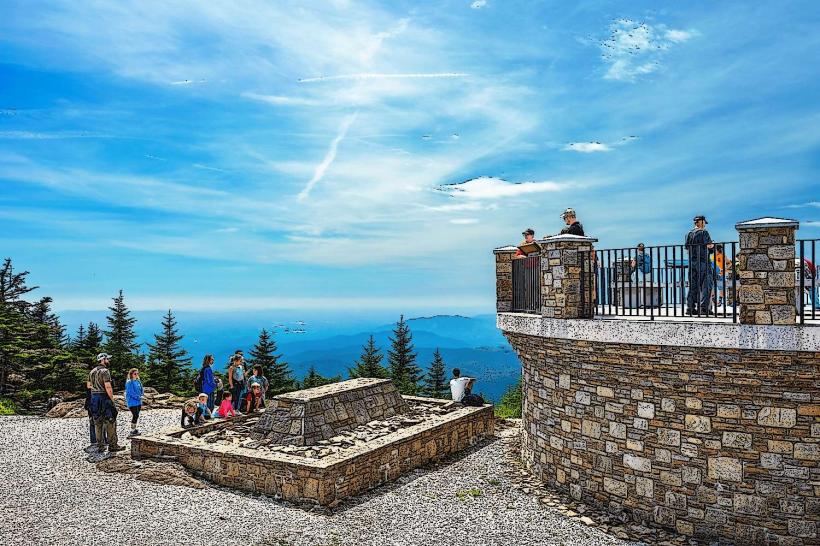Information
Landmark: Thomas Wolfe MemorialCity: Asheville
Country: USA North Carolina
Continent: North America
Thomas Wolfe Memorial, Asheville, USA North Carolina, North America
The Thomas Wolfe Memorial is a historic house museum located in Asheville, North Carolina. It preserves the childhood home of author Thomas Wolfe.
Visual Characteristics
The structure is a two-and-a-half-story Victorian Queen Anne style house. It is constructed primarily of wood with a painted exterior. The house features a prominent wraparound porch with turned posts and a spindle frieze. The roof is a complex arrangement of gables and dormers. The exterior paint color is a muted yellow with white trim.
Location & Access Logistics
The memorial is situated at 52 North Liberty Street in downtown Asheville. It is approximately 0.5km North of the central business district. Parking is available in nearby public garages, such as the Rankin Avenue Garage (0.2km West) and the Lexington Avenue Garage (0.3km Southwest). Public bus routes serving downtown Asheville stop within a 0.1km radius of the site.
Historical & Ecological Origin
The house was built in 1883 by William O. Wolfe, Thomas Wolfe's father, a stonecutter and later a tombstone salesman. Thomas Wolfe lived in the house from 1906 to 1916. The house was designated a National Historic Landmark in 1971.
Key Highlights & Activities
Visitors can tour the preserved rooms of the house, which are furnished to reflect the period of Wolfe's childhood. Guided tours provide information on Wolfe's life and literary career. The museum shop offers books by Thomas Wolfe and related merchandise.
Infrastructure & Amenities
Restrooms are available on-site. Limited shaded areas are present on the porch. Cell phone signal (4G/5G) is generally strong in this downtown location. Food vendors and restaurants are located within a 0.5km radius.
Best Time to Visit
The house is open for tours Tuesday through Saturday. Mid-morning (10:00 AM - 11:00 AM) often provides less crowded tour experiences. All seasons are suitable for visiting, though spring and fall offer moderate outdoor temperatures for exploring the surrounding downtown area.
Facts & Legends
The house is often referred to as "The Old Kentucky Home" due to its appearance in Thomas Wolfe's semi-autobiographical novel, "Look Homeward, Angel." A specific tip for visitors is to observe the original woodwork and detailing throughout the house, which showcases the craftsmanship of the late 19th century.
Nearby Landmarks
- Asheville Pinball Museum (0.1km Southwest)
- Pack Square Park (0.3km South)
- Asheville Art Museum (0.4km Southwest)
- Basilica of Saint Lawrence (0.5km West)

